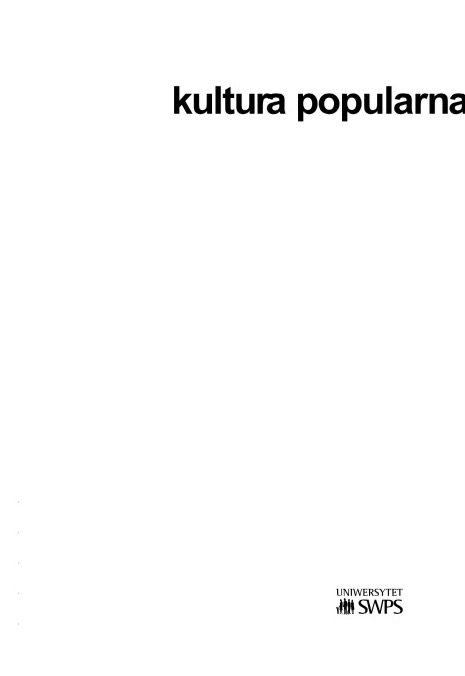„Podoba mi się, jak umierasz, chłopcze”. Django i jego Czarny antybohater
“I Like the Way You Die, Boy”. Django Unchained and the Black antihero
Author(s): Antoni GórnySubject(s): Customs / Folklore, Studies of Literature, Studies in violence and power, Film / Cinema / Cinematography, Theory of Literature
Published by: Szkoła Wyższa Psychologii Społecznej
Keywords: Django; film; violence; Black folktales;
Summary/Abstract: The article discusses the phenomenon of the “Black badman” in the context of Quentin Tarantino’s film Django Unchained. A brief outline of the history of Black folktales provides the parameters for the rise of violent tales and tales of violent men, such as Railroad Bill or Stagolee. As an outlaw, Django represents a counterimage to the threat of Black violence that was used to justify not only the racist brutality of lynching, but also the establishment of law enforcement agencies in the American South. By alluding to the legend of Bras Coupé, Tarantino provides a historic lineage for Django, while his use of the “blaxploitation” aesthetic highlights the viability of the Black badman figure for a contemporary America. As a badman, Django is not simply a personification of resistance to White racial domination, but a veritable superhero for a future that one might be tempted to call “post-racial.”The article discusses the phenomenon of the “Black badman” in the context of Quentin Tarantino’s film Django Unchained. A brief outline of the history of Black folktales provides the parameters for the rise of violent tales and tales of violent men, such as Railroad Bill or Stagolee. As an outlaw, Django represents a counter image to the threat of Black violence that was used to justify not only the racist brutality of lynching, but also the establishment of law enforcement agencies in the American South. By alluding to the legend of Bras Coupé, Tarantino provides a historic lineage for Django, while his use of the “blaxploitation” aesthetic highlights the viability of the Black badman figure for a contemporary America. As a badman, Django is not simply a personification of resistance to White racial domination, but a veritable superhero for a future that one might be tempted to call “post-racial.”
Journal: Kultura Popularna
- Issue Year: 49/2016
- Issue No: 03
- Page Range: 48-58
- Page Count: 11
- Language: Polish

